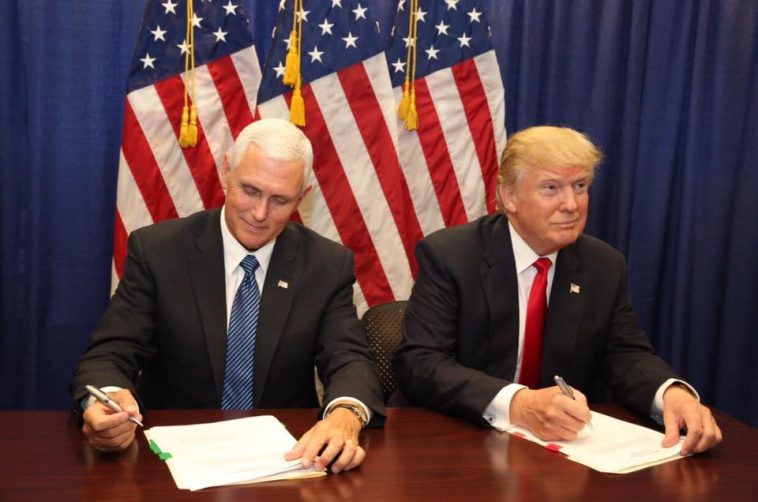Various departments across the U.S. federal government interact with Indian Country, including prominent departments like the U.S. Department of the Interior, Department of Justice, and Department of Health and Human Services. Roughly 20 federal entities have a direct, persistent involvement with Indian Country. As each new administration begins its transition phase, they announce the individuals chosen by the President-elect for their nominees. It is essential to thoroughly evaluate these nominees due to their influential positions at the helm of these federal departments.
For instance, a few nominees from the incoming cabinet of President-elect Donald Trump, namely Matt Gaetz and Robert F. Kennedy Jr., have sparked significant concerns. Matt Gaetz, who was initially suggested by Trump for the position of Attorney General, stepped down from the nomination process. Many have regarded this as a positive turn of events for the nation. His appointment was announced on November 13, 204, and he withdrew eight days into the nomination process.
The Department of Justice plays an essential role in Indian Country, a fact that highlights the significance of closely monitoring such developments like Gaetz’s nomination and subsequent withdrawal. Of the myriad duties entrusted to the Justice Department, addressing the crisis of Missing and Murdered Indigenous People (MMIP) is of paramount importance. Epidemic levels of disappearances among Native Americans, often related to human trafficking issues, underscore the gravity of this situation.
Gaetz has faced allegations of significant misconduct in his past, which included accusations of sex trafficking minors and drug allegations, making him an unsuitable candidate to tackle such severe concerns as the human trafficking problem that is rampant in Native communities. His controversial past was broadcasted by the media in an unwavering fashion that ensured he was held accountable. With the Republicans dominating all the significant branches of the government — the presidency, Congress, and the Supreme Court, the role of the media as a crucial check and balance in the democratic system has become all the more indispensable.
Another worrying candidate, put forward by Trump, is Robert F. Kennedy Jr., nominated to head the U.S. Department of Health and Human Services (HHS). The HHS, responsible for managing the Indian Health Service (IHS) and the Administration for Native Americans (ANA), boasts a workforce exceeding 80,000 employees and predicts a budget of around $1.7 trillion for 2025. RFK Jr.’s nomination has been a cause for concern for many due to several reasons.
Perhaps the most pressing reason is his lack of experience in healthcare and management, raising doubts about his capability to effectively helm the HHS. Additionally, his vocal opposition to vaccines, a stance that is not substantiated by medical science, has made his nomination a contentious issue. It is well-established that vaccines have contributed significantly to saving lives. Research published in The Lancet indicates that over the past five decades, vaccines have prevented the deaths of approximately 154 million people, which averages out six lives saved every minute. His unfounded claims against vaccines can potentially jeopardize public health.
Furthermore, Kennedy’s opposition to the addition of fluoride in drinking water, based on unproven claims about its influence on children’s cognitive abilities, runs contrary to the consensus in the scientific community. Even though the approval for fluoridation of water is generally undertaken at the state and local government level, his claims still remain troubling, primarily due to the absence of scientific validation.
When considering the pack of nominees, Doug Burgum, the Governor of North Dakota, chosen by Trump as a replacement for the outgoing Interior Secretary Deb Haaland (Laguna Pueblo), seems a comparatively balanced figure. Burgum, who has occupied the governor’s seat since 2016, presents himself as a competent leader.
The Department of the Interior holds significant importance for Indian Country, with several critical agencies operating under it such as the Bureau of Indian Affairs, Bureau of Indian Education, Office of Special Trustee, and Bureau of Land Management. Trump’s campaign narrative often highlighted economic improvements through increased tariffs and domestic oil production, encapsulated by the slogan ‘Drill, baby, drill’. Burgum is expected to implement this agenda during his tenure as the Interior Secretary.
In Trump’s previous administration, Native American leaders were informed by officials that about 20% of untapped U.S. energy reserves are located on tribal lands. Should Burgum be confirmed, his management of tribal energy resources needs to be meticulously scrutinized to avoid exploitation and negative health impact like those noted from uranium mining on Navajo lands, leading to an uptick in cancer incidents.
Contrary to Trump’s claims, domestic oil production under the current Biden-Harris administration has surpassed that of the first Trump administration, thus undermining criticism directed towards the energy policies of the current administration. However, it brings some level of comfort that Gaetz is no longer in the running for the post of the Attorney General.
Yet, RFK Jr. remains a problematic choice for leading the HHS due to his evident lack of qualifications and the promotion of misinformation that can potentially harm public health. As for Burgum, it is hoped that he understands the need for the protection of sacred tribal sites and continues the enhanced tribal consultations instituted under the Biden-Harris administration.
The role of the Interior Secretary requires a delicate balance of energy exploration and development along with the preservation of the cultural and environmental identity of Indian Country. Recognizing this interconnection is key to upholding the integrity of these communities. To quote the indigenous perspective, ‘Thayekgdenwendemen – We are all related.’


